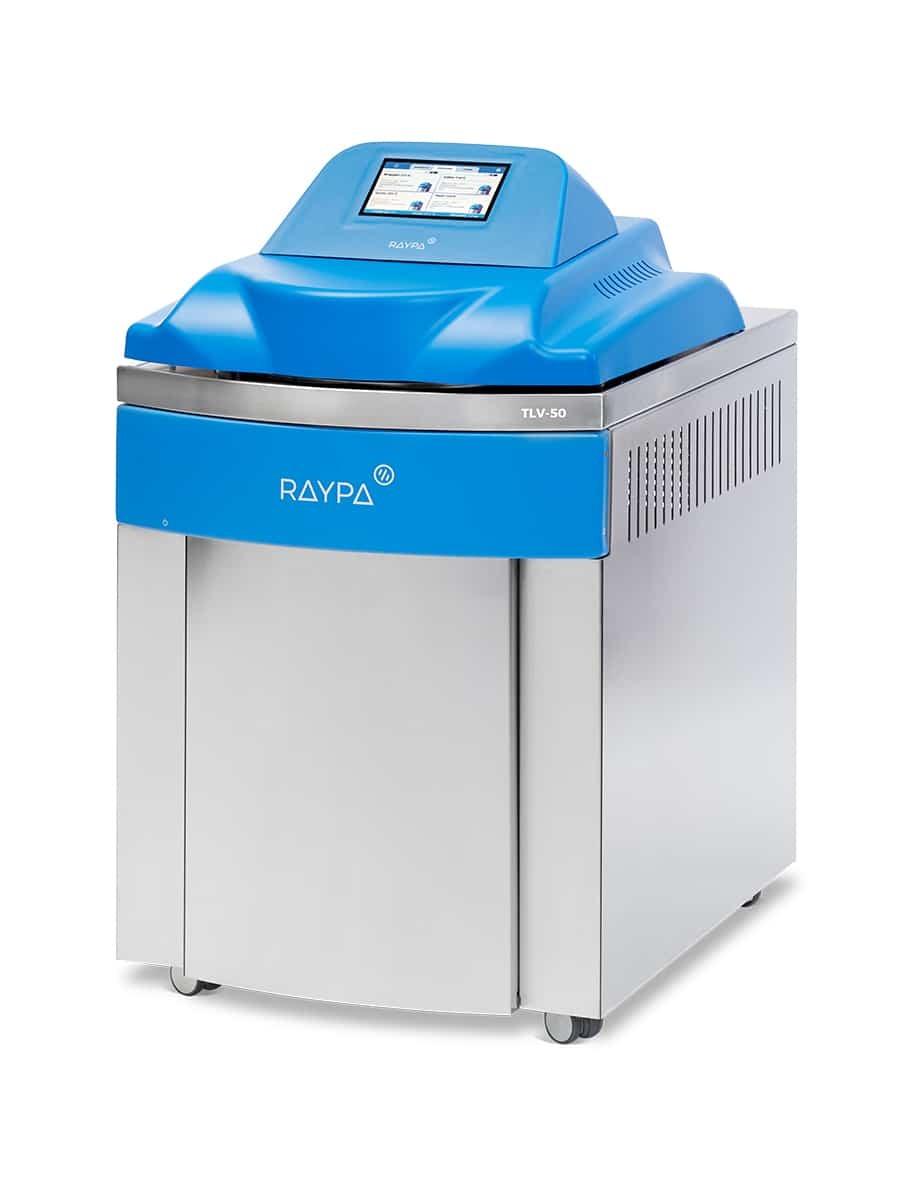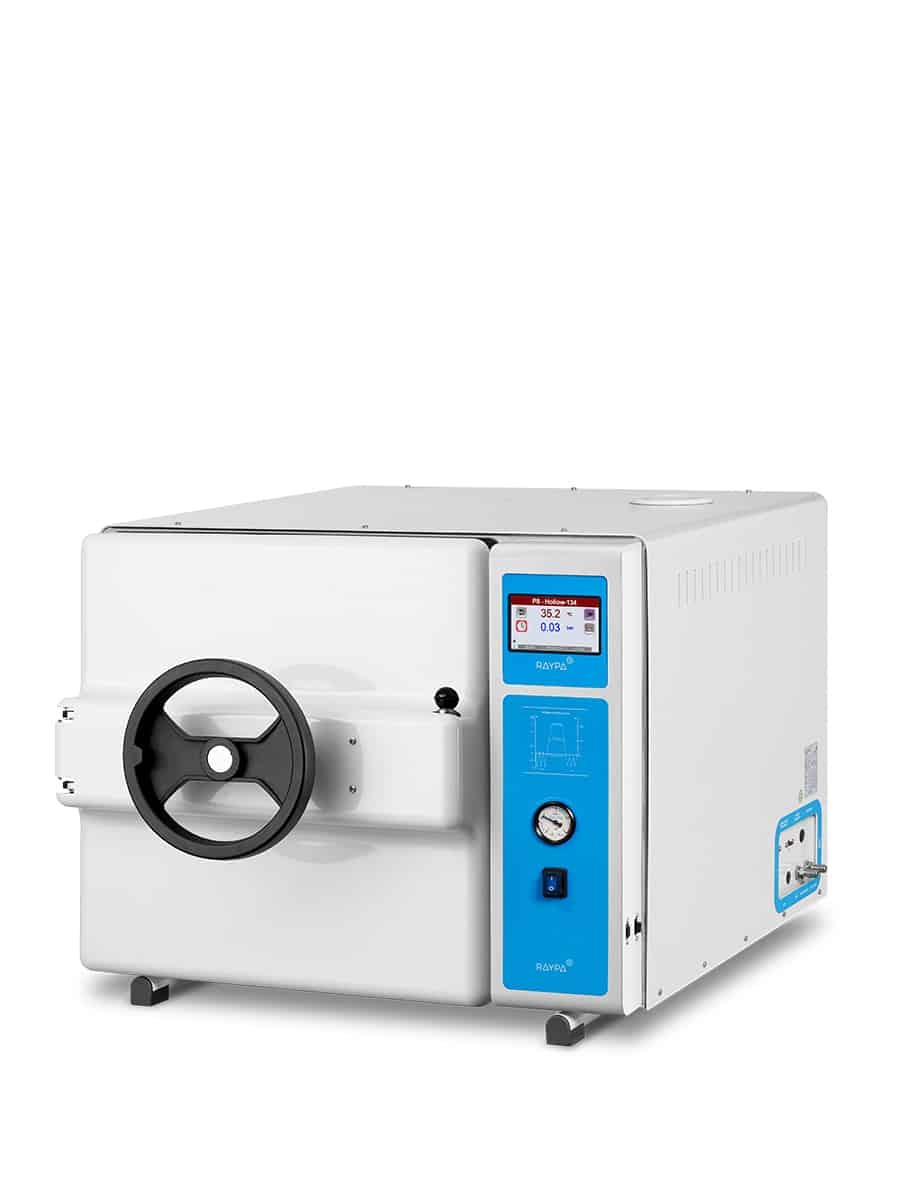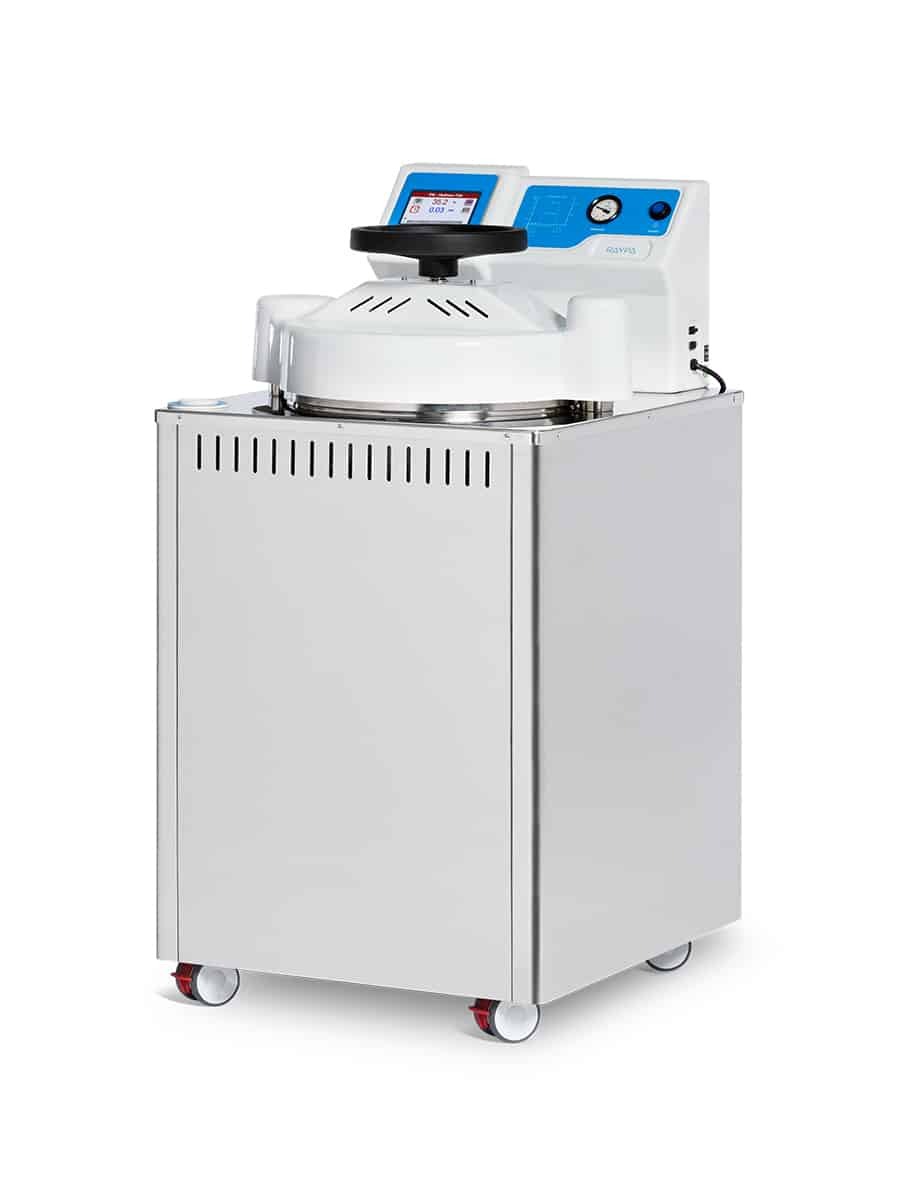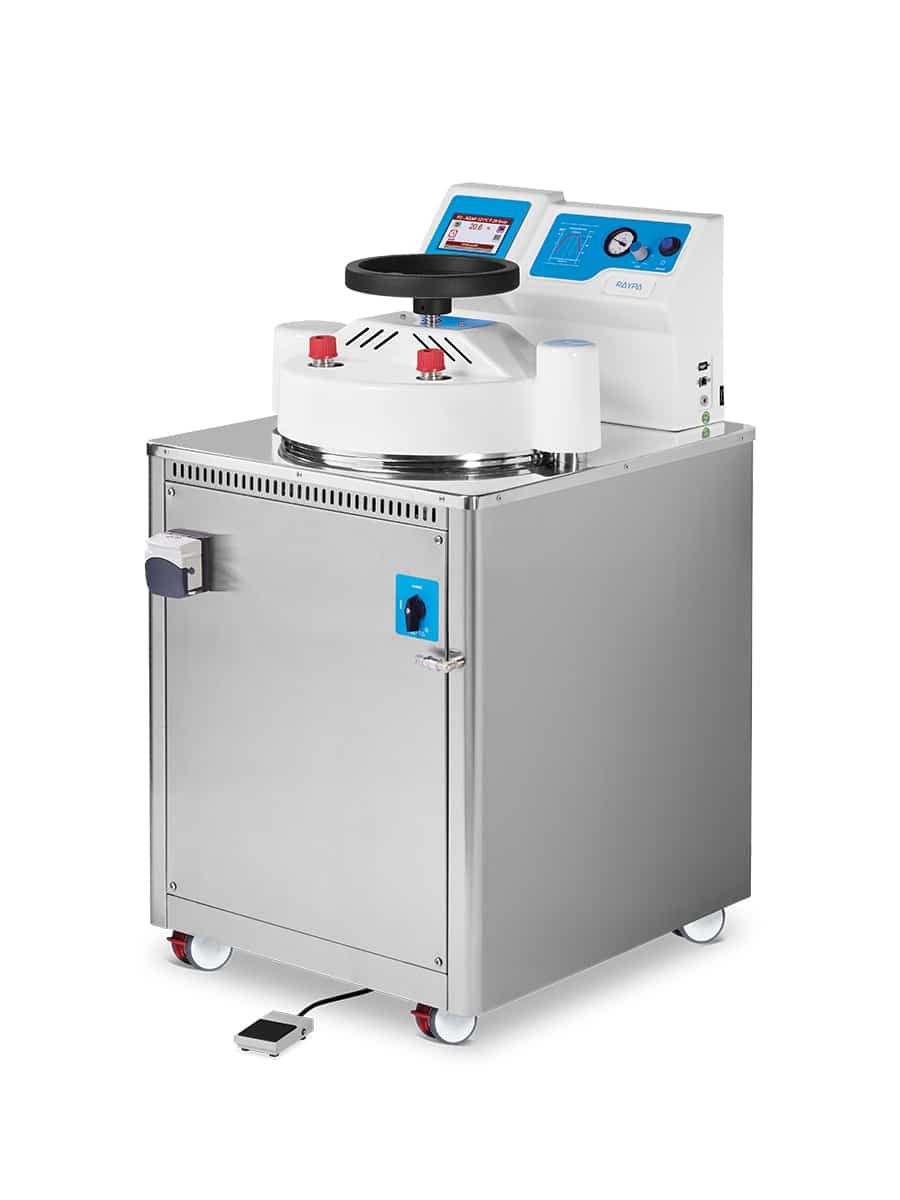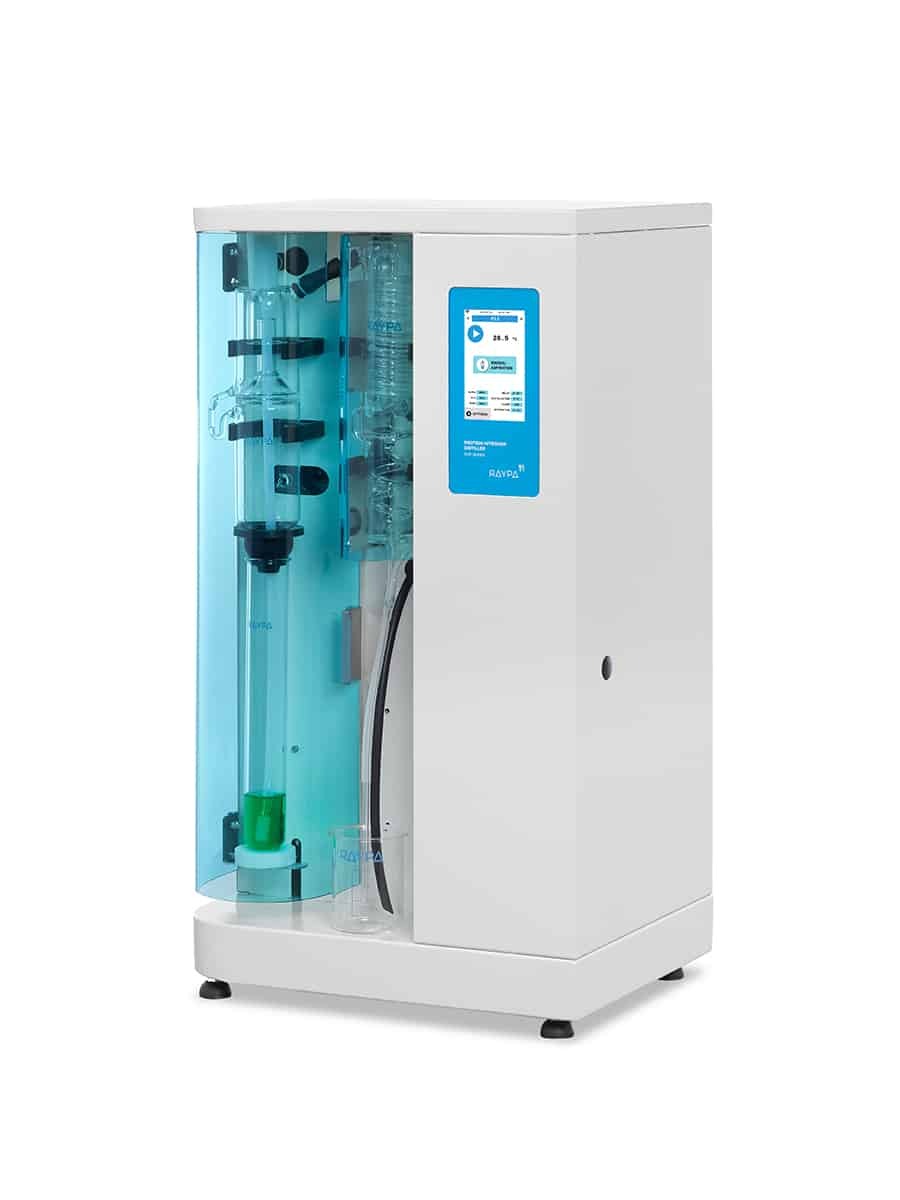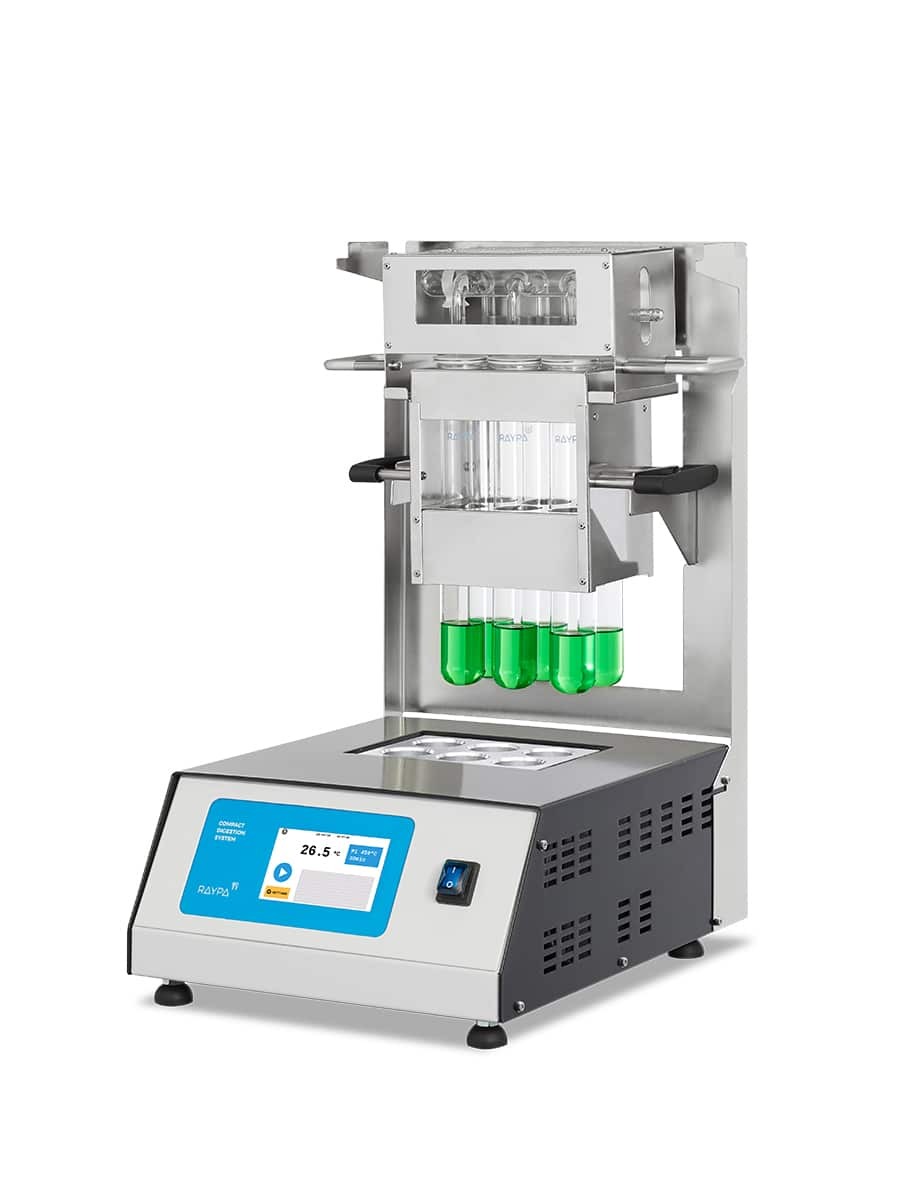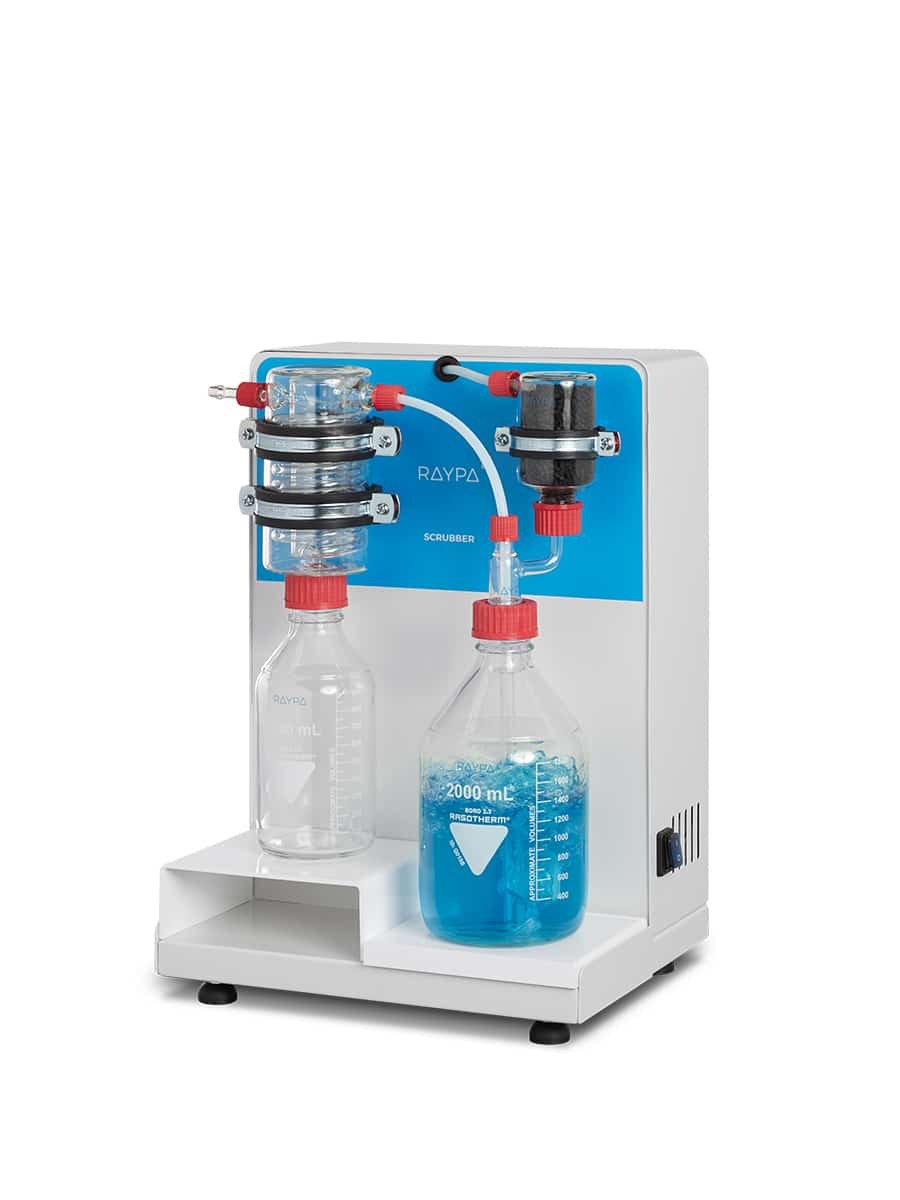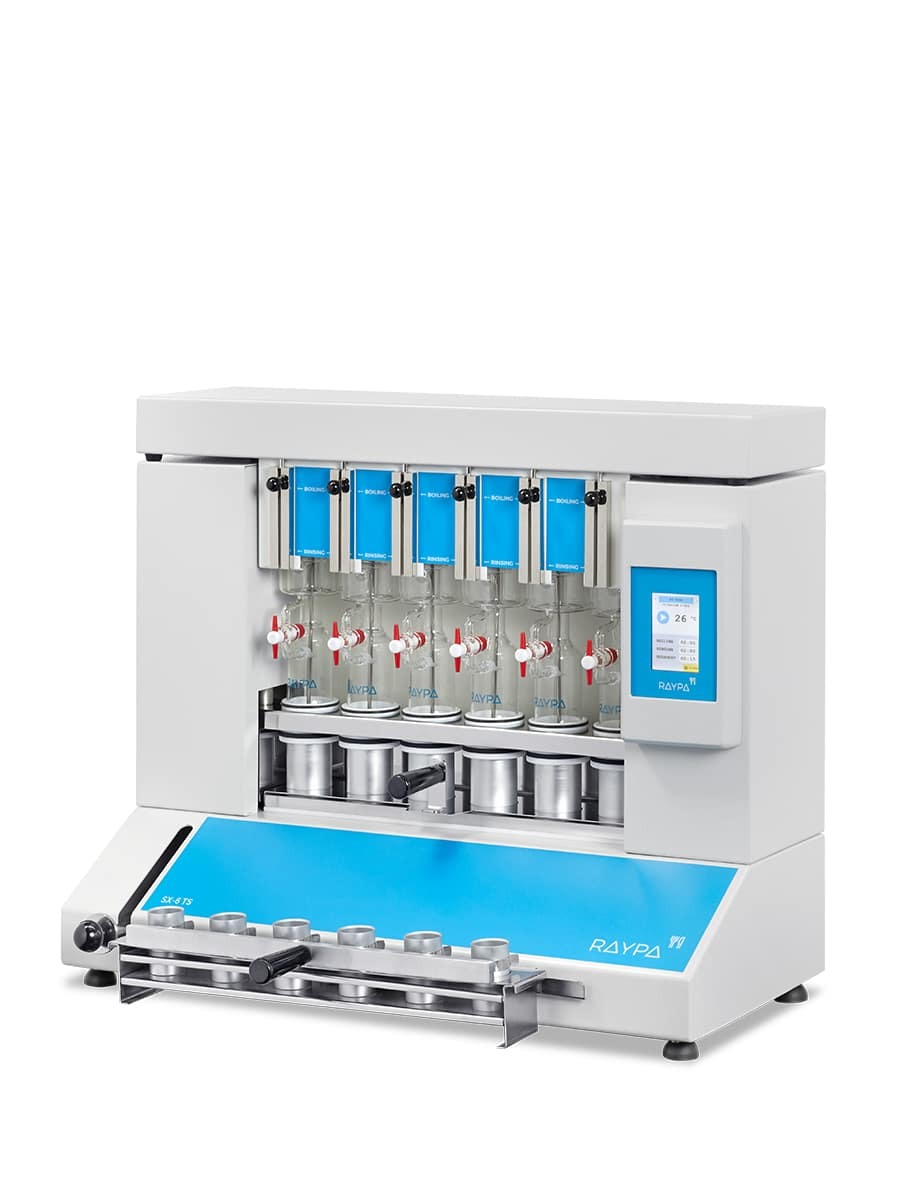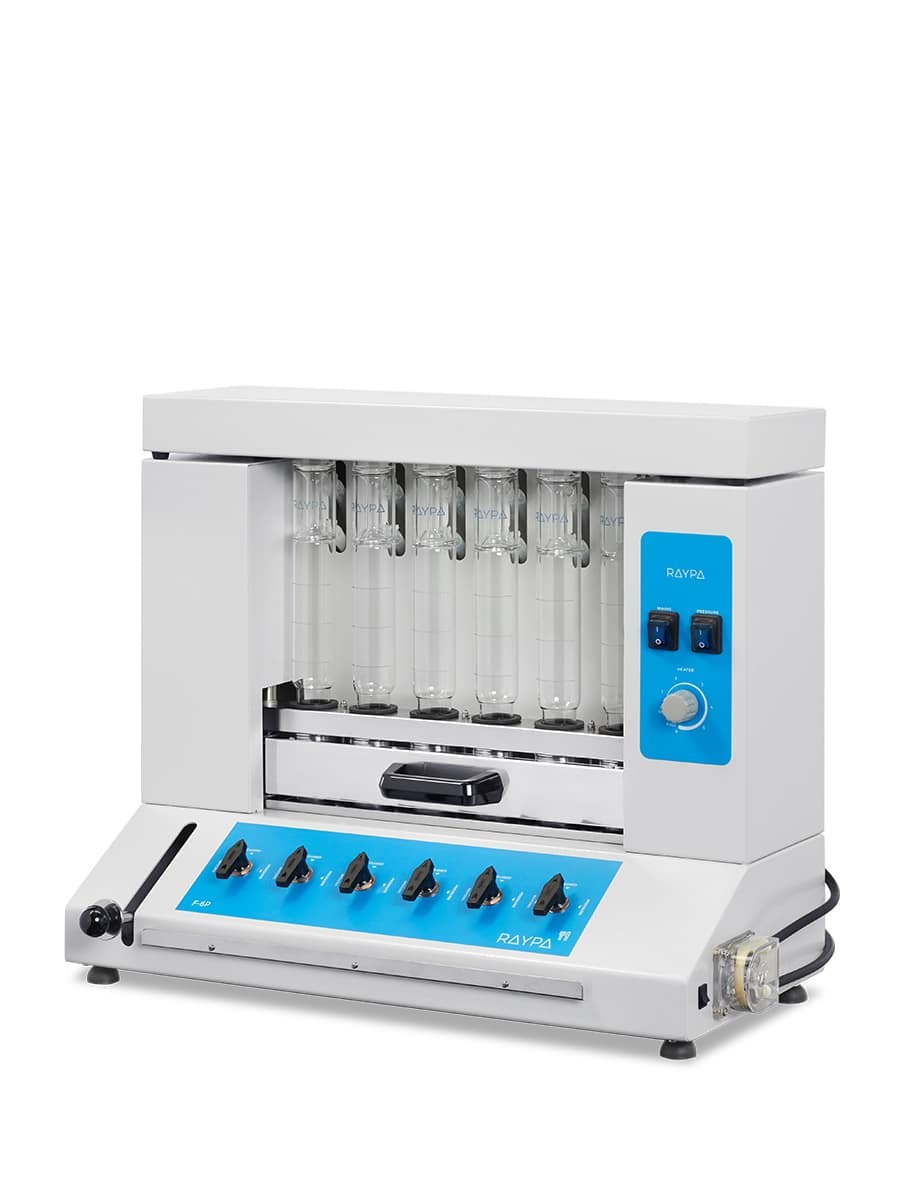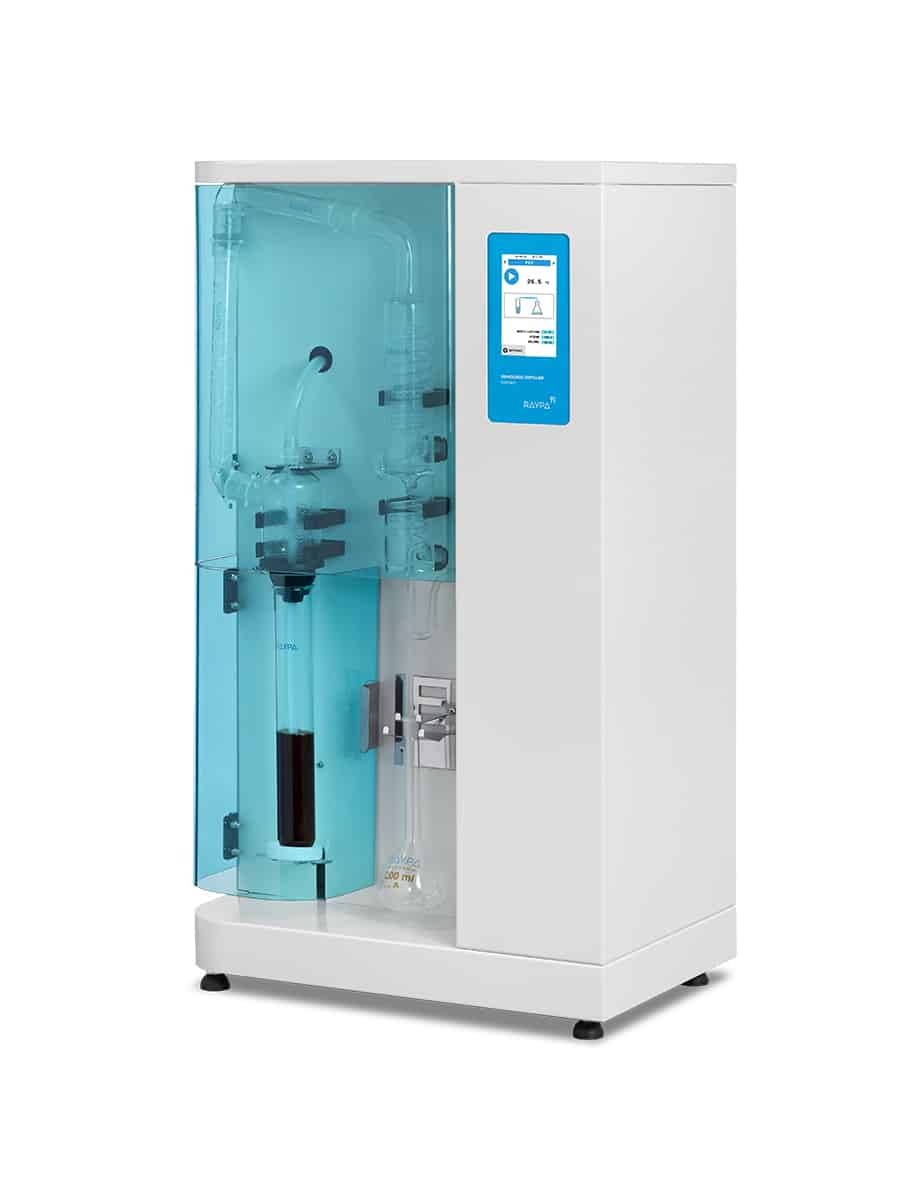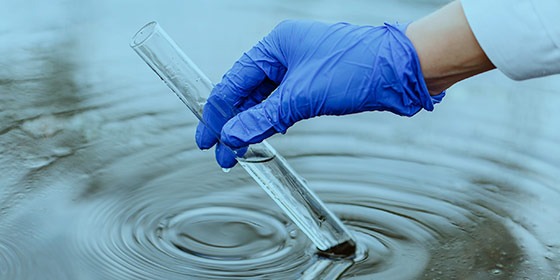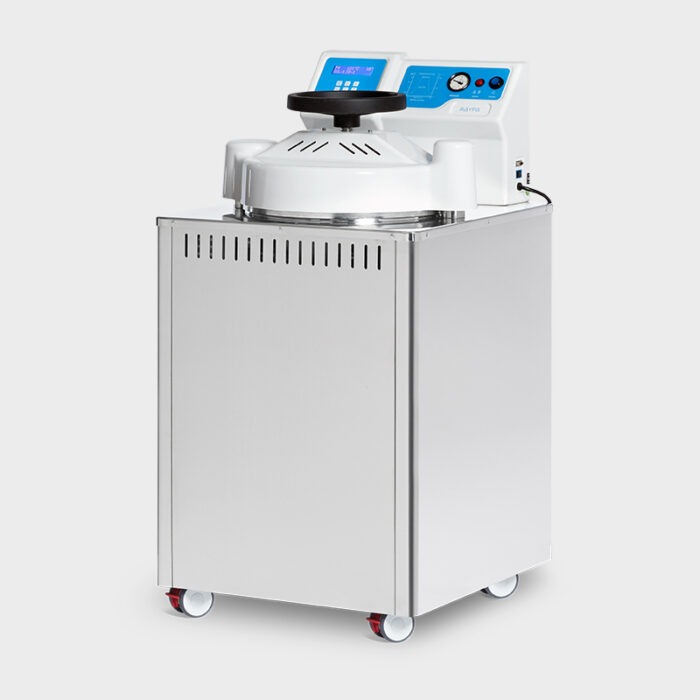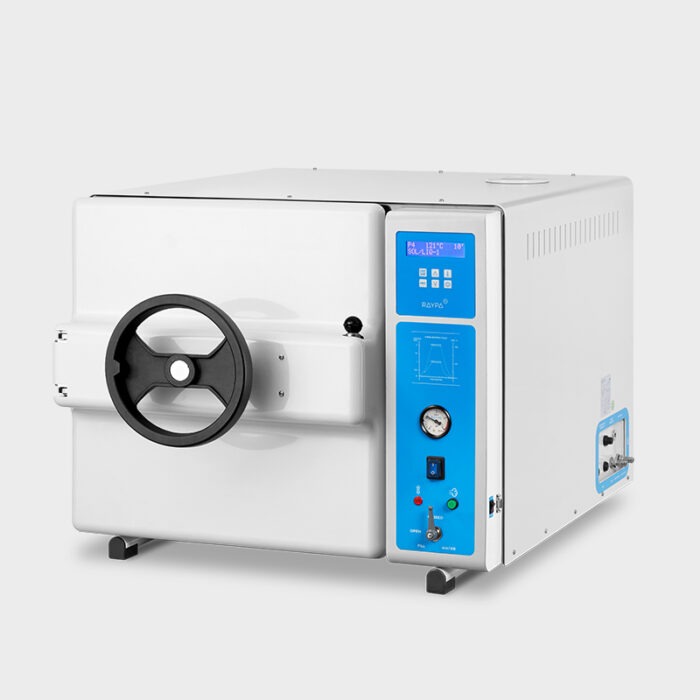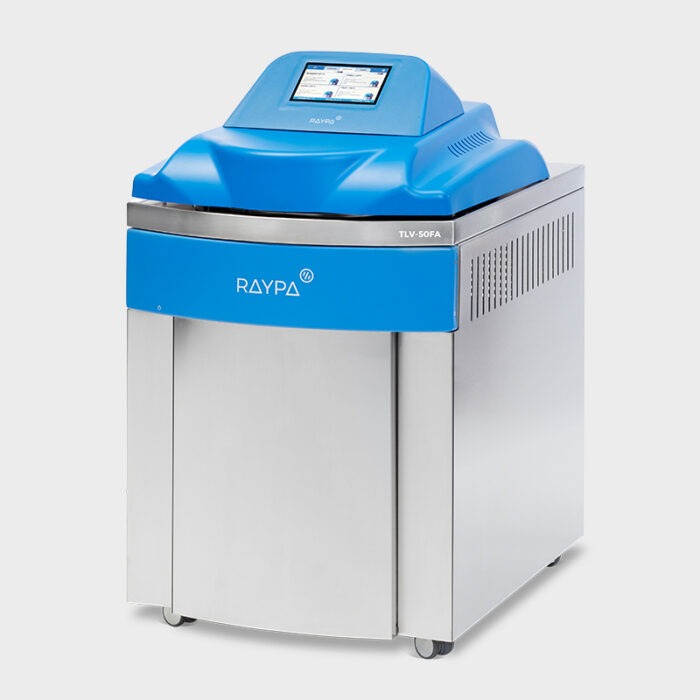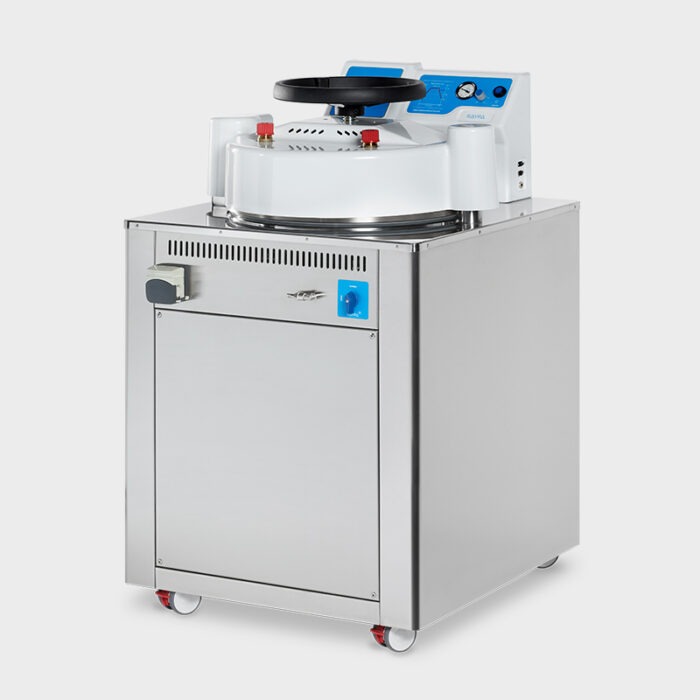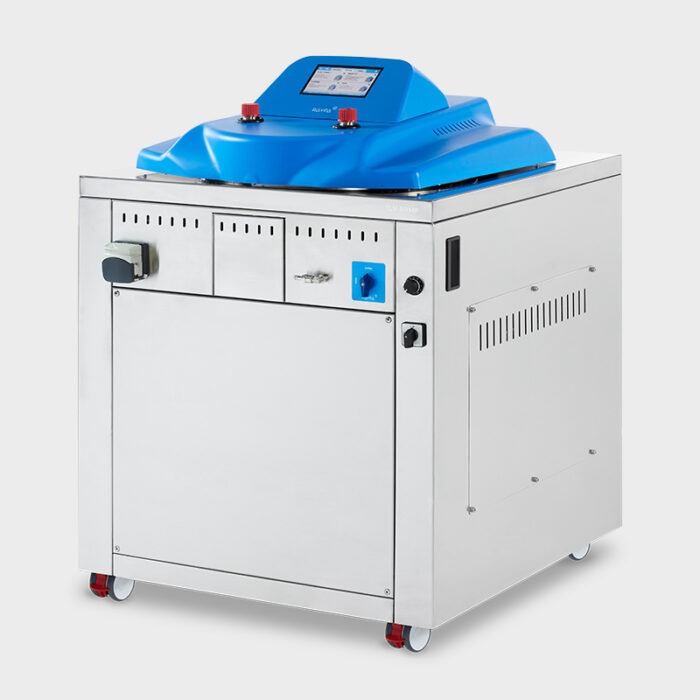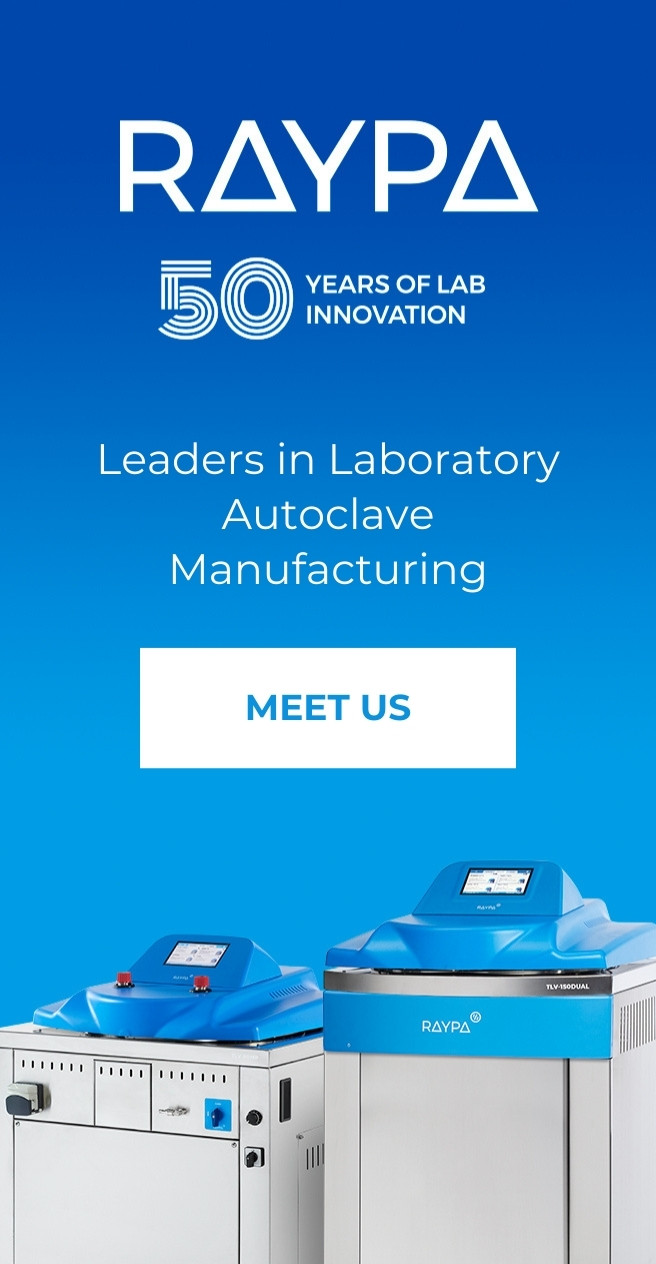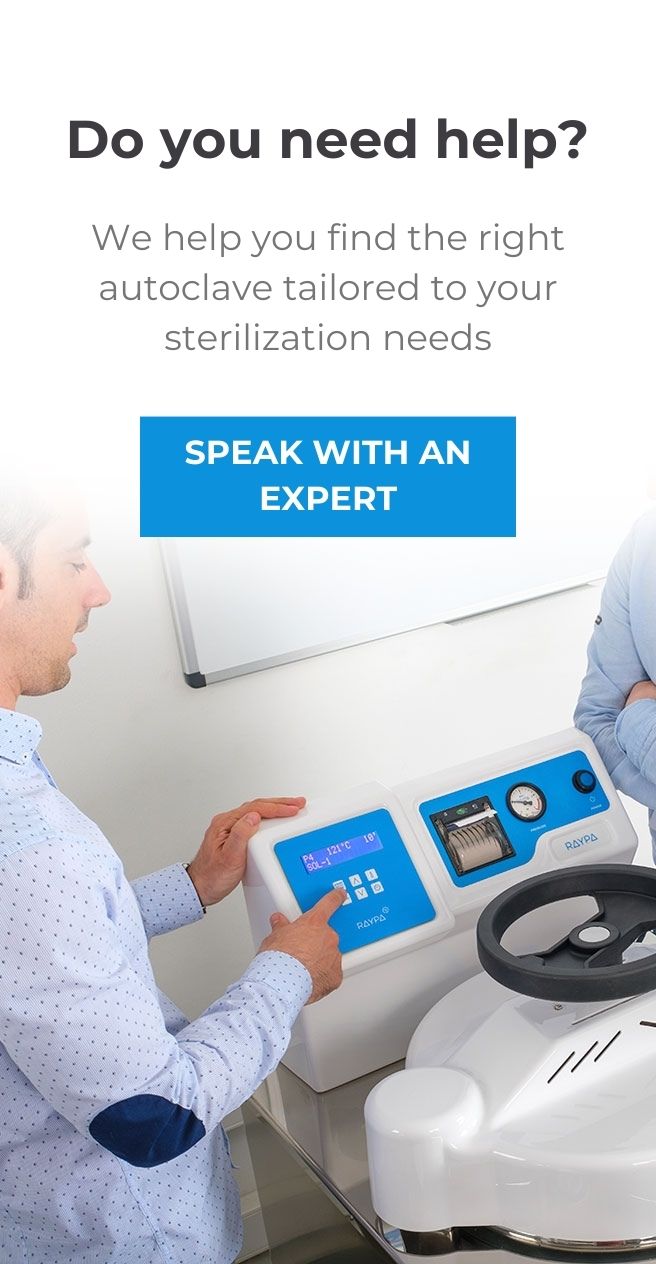Laboratory autoclaves for the sterilization of wastewater
Sterilizing wastewater is essential in certain types of facilities where tests and experiments are conducted, such as laboratories (particularly those with a BSL-2 level of security or higher), medical and veterinary facilities and pharmaceutical labs.
Historically, wastewater containing hazardous substances, which could not be safely processed by standard treatment methods, was gathered at such facilities and transported to specialized treatment centers. This approach not only added extra costs for transportation but also introduced risks associated with handling and moving potentially dangerous materials.
However, the challenge of removing contaminants from wastewater—contaminants that conventional treatment plants are ill-equipped to handle—can be addressed through thorough sterilization techniques. Employing autoclaves within wastewater treatment facilities offers a reliable solution, ensuring the rapid and secure deactivation of large quantities of wastewater, making it safe for disposal.
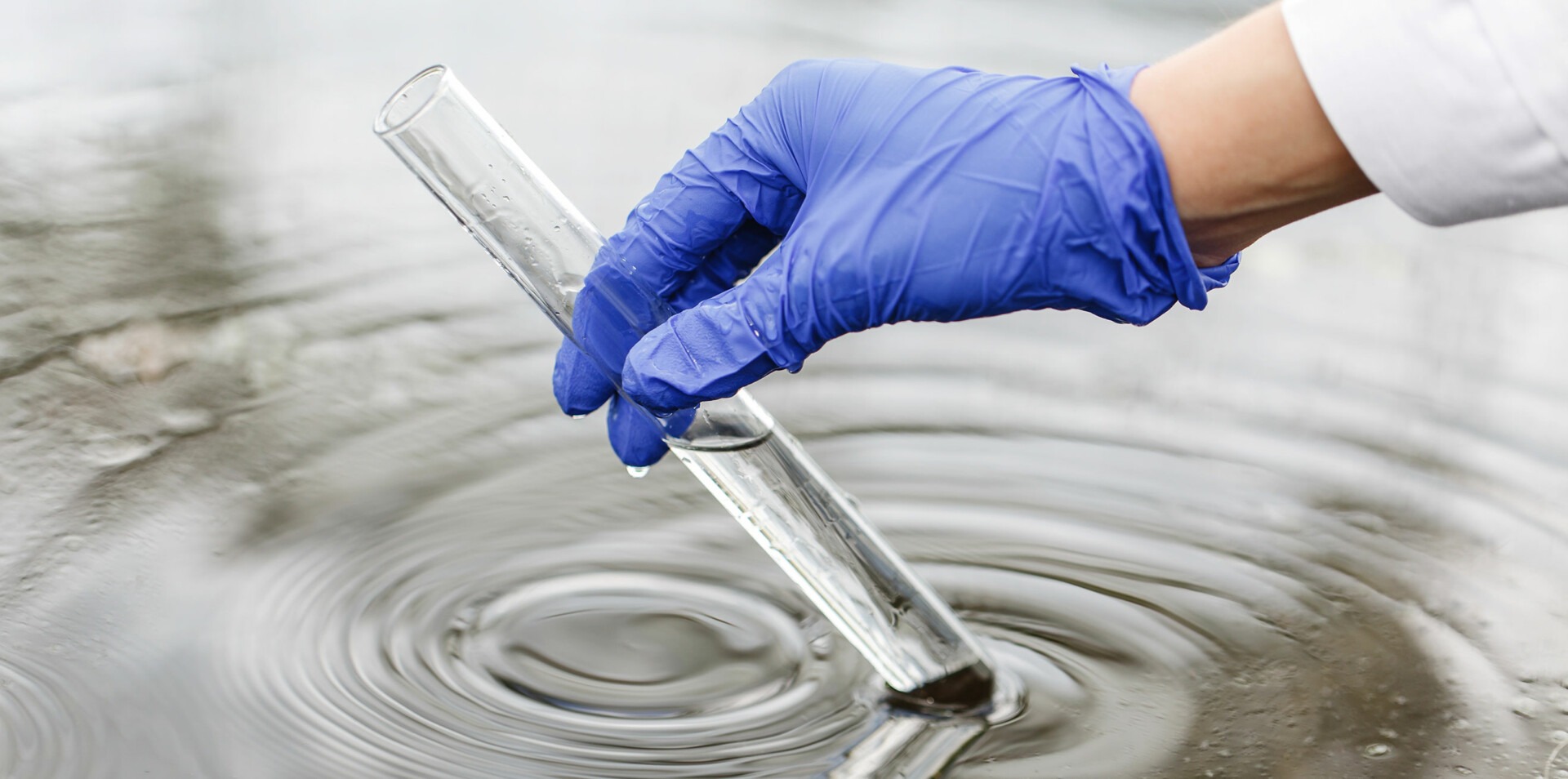
An autoclave for the treatment of wastewater is engineered to thoroughly eradicate dangerous microorganisms, such as bacterial colonies, making the treated water sterile and devoid of biological impurities. Once the treatment is complete, the wastewater is devoid of microbiological pollution and is safe for disposal through standard sanitation systems. This process is crucial as regulations in many countries strictly forbid the release of any substances into the water system that might endanger public health, present a biological hazard, or pollute potable water sources.
The widespread adoption of wastewater sterilizers has not only reduced costs but also streamlined liquid waste disposal quickly and safely, closer to the point of origin. This is why laboratories and other facilities producing wastewater are increasingly equipped with autoclaves for their treatment.
Both autoclaves and wastewater treatment processes must adhere to strict regulations, especially in a laboratory environment. These regulations aim to ensure the safety of staff, the community and the environment.
Autoclaves for wastewater treatment plants of certified quality
At RAYPA, we offer a wide range of autoclaves of certified quality for the treatment of wastewater in specialized laboratories and sewage treatment facilities. Our product catalog features an extensive variety of models from both the Classic Line and Top Line range.
Designed for ease of use, our autoclaves feature intuitive controls and advanced safety features, enabling thorough traceability of the sterilization process. Their robust construction, outstanding value and straightforward installation make them an exceptional choice for laboratories settings of any size.
In addition to a diverse range of models, we provide a wide selection of accessories, including baskets, specific racks, transport carts and lifting cranes, among others.
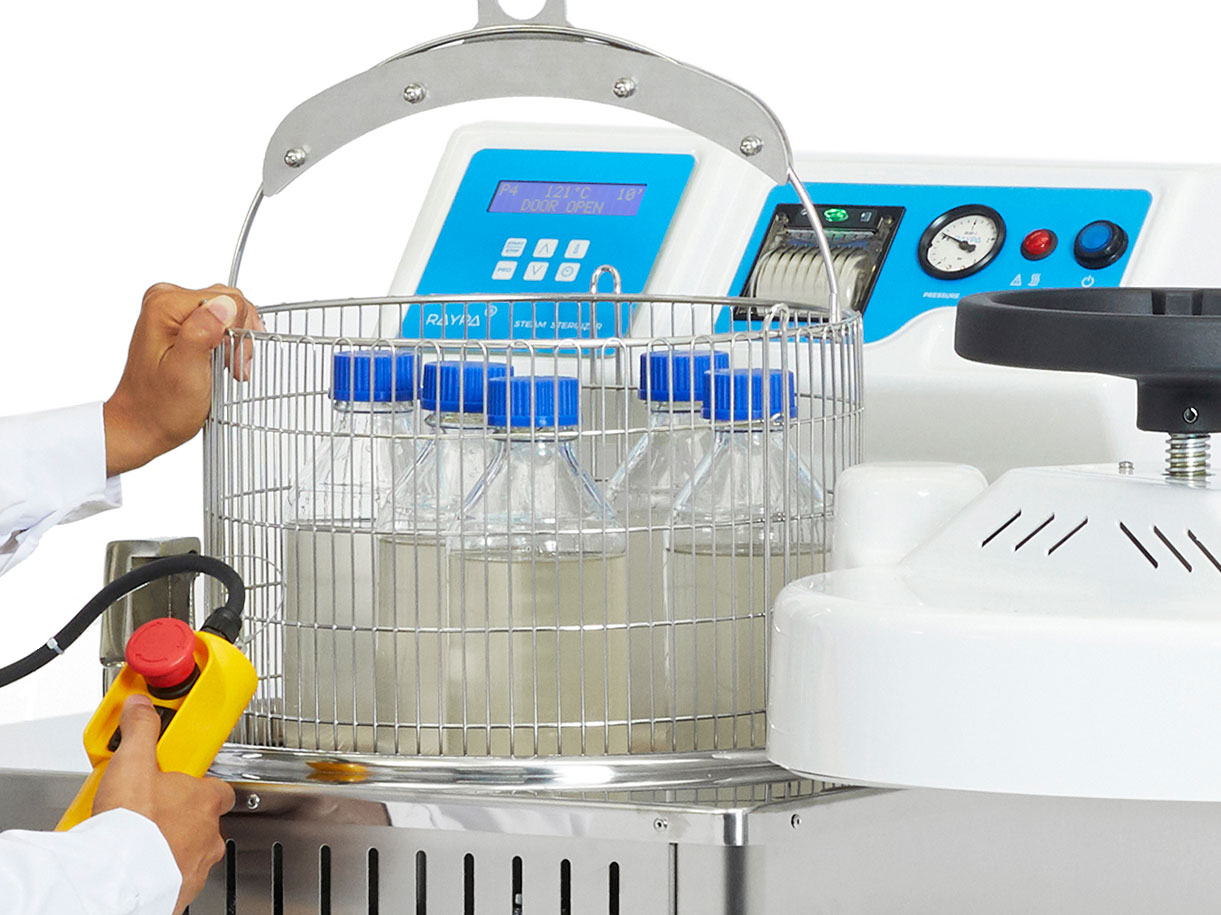
Sterilizing wastewater in laboratories requires continuous monitoring throughout the entire process. For this reason, our autoclaves support the integration of monitoring and traceability systems, such as ticket printers and management software for connecting the equipment to a computer, thereby ensuring process quality and the proper verification of sterilization in each cycle.
Realiability of sterilization equipment is essential for conducting safe and successful tests and experiments within laboratory settings, and for preserving the quality of production processes in industrial contexts. That is why for over 45 years, all our autoclaves for wastewater plants have been designed and constructed at our facilities in Barcelona, reflecting our commitment to quality and our extensive experience.
This equipment undergoes extensive testing to ensure its quality and to comply with the most stringent regulations and standards, including the European Pressure Equipment Directive (PED). By adopting this approach, we pursue the highest levels of production excellence and ensure the safety of our products.
At RAYPA, we provide comprehensive solutions tailored to meet our customers’ sterilization requirements. With our wide selection of autoclaves and the expert advice of our team, we assist you in finding the equipment that best suits your requirements.
For more detailed and customized guidance on choosing the ideal autoclave for your laboratory, do not hesitate to contact our experts. Working together, we can identify and provide a solution that ensures both efficiency and safety in all your sterilization operations.
Why RAYPA?
GLOBAL REACH
With half a century of experience, we have a lengthy list of satisfied customers around the world. Currently, we export 85% of our annual turnover and have a stable network of distributors in over 100 countries.
EFFICIENT TECHNICAL SERVICE
Our team of highly qualified technicians and engineers is expert in our products. If you experience a technical issue, it will be our priority to rectify it. When you purchase a RAYPA unit, you’re guaranteed top-level support and technical assistance.
EXPERT MANUFACTURER
RAYPA is a global leader in manufacturing laboratory autoclaves. Each of our autoclaves is designed and built entirely at our facilities in Barcelona, ensuring the highest levels of production excellence.
FULL AND CUSTOMIZABLE RANGE
We offer an extensive portfolio of laboratory autoclaves to cover multiple applications and market segments. Discover the combination of autoclave model and accessories that best fits your needs within our 11 series and 35 available models.
INNOVATION AND QUALITY
Our products feature advanced technology, ongoing innovation, superior construction quality, and are designed for a long service life. Our technical and engineering staff works tirelessly every day to optimize our products and exceed our customers’ expectations.
COMPREHENSIVE CONSULTATION
Our team of specialists assesses each project and provides guidance to clients on the option that best suits their requirements. After the sale, we offer training on the use and recommended maintenance of each unit to ensure its optimal operation and extend its lifespan.

